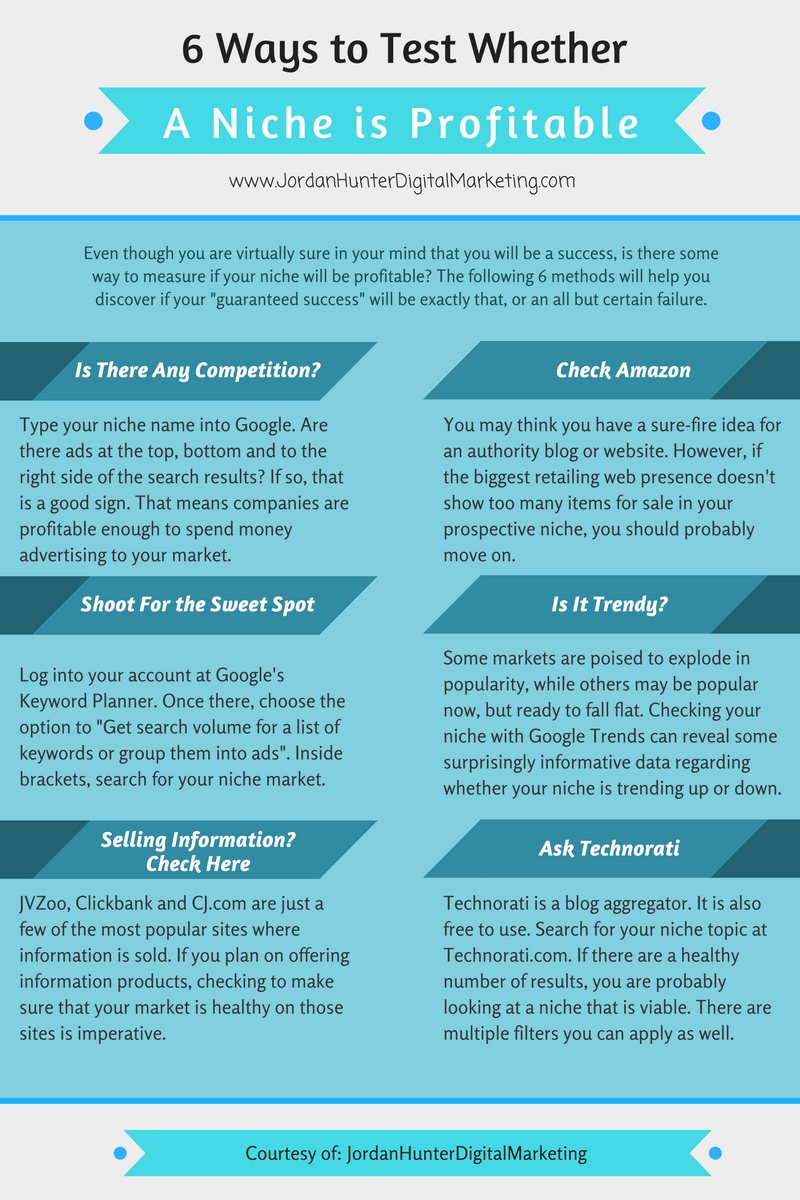
6 Ways to Test Whether A Niche is Profitable
You have an amazing idea for a blog. You are certain that becoming an authority figure in this niche will be a cinch. You envision yourself being interviewed as an overnight success, and can’t wait to get started. Even though you are virtually sure in your mind that you will be a success, is there some way to measure if your niche will be profitable? The following 6 methods will help you discover if your “guaranteed success” will be exactly that, or an all but certain failure.
1 – Is There Any Competition?
Too much competition can be a bad thing. There are so many web properties already entrenched in a market that is very competitive, that it will be tough for you to be a success. However, no competition is a bad sign as well. Type your niche name into Google. Are there ads at the top, bottom and to the right side of the search results? If so, that is a good sign. That means companies are profitable enough to spend money advertising to your market.
2 – Check Amazon
Amazon is the world’s largest online retailer. Type a potential niche into the search engine at Amazon. Are there thousands of results, or less than 100? You may think you have a sure-fire idea for an authority blog or website. However, if the biggest retailing web presence doesn’t show too many items for sale in your prospective niche, you should probably move on.
3 – Shoot For the Sweet Spot
Log into your account at Google’s Keyword Planner. If you don’t have an account, sign-up is free. Once there, choose the option to “Get search volume for a list of keywords or group them into ads”. Inside brackets, search for your niche market. For example [organic dog biscuits] may show 34,900 monthly searches. Shoot for somewhere between 10,000 and 100,000 exact match searches for a sweet spot that reveals niche viability.
4 – Is It Trendy?
Some topics trend reliably at certain times every year. Some markets are poised to explode in popularity, while others may be popular now, but ready to fall flat. Checking your niche with Google Trends can reveal some surprisingly informative data regarding whether your niche is trending up or down.
5 – Selling Information? Check Here
JVZoo, Clickbank and CJ.com are just a few of the most popular sites where information is sold. If you plan on offering information products, checking to make sure that your market is healthy on those sites is imperative.
6 – Ask Technorati
Technorati is a blog aggregator. It is also free to use. Search for your niche topic at Technorati.com. If there are a healthy number of results, you are probably looking at a niche that is viable. There are multiple filters you can apply as well.






